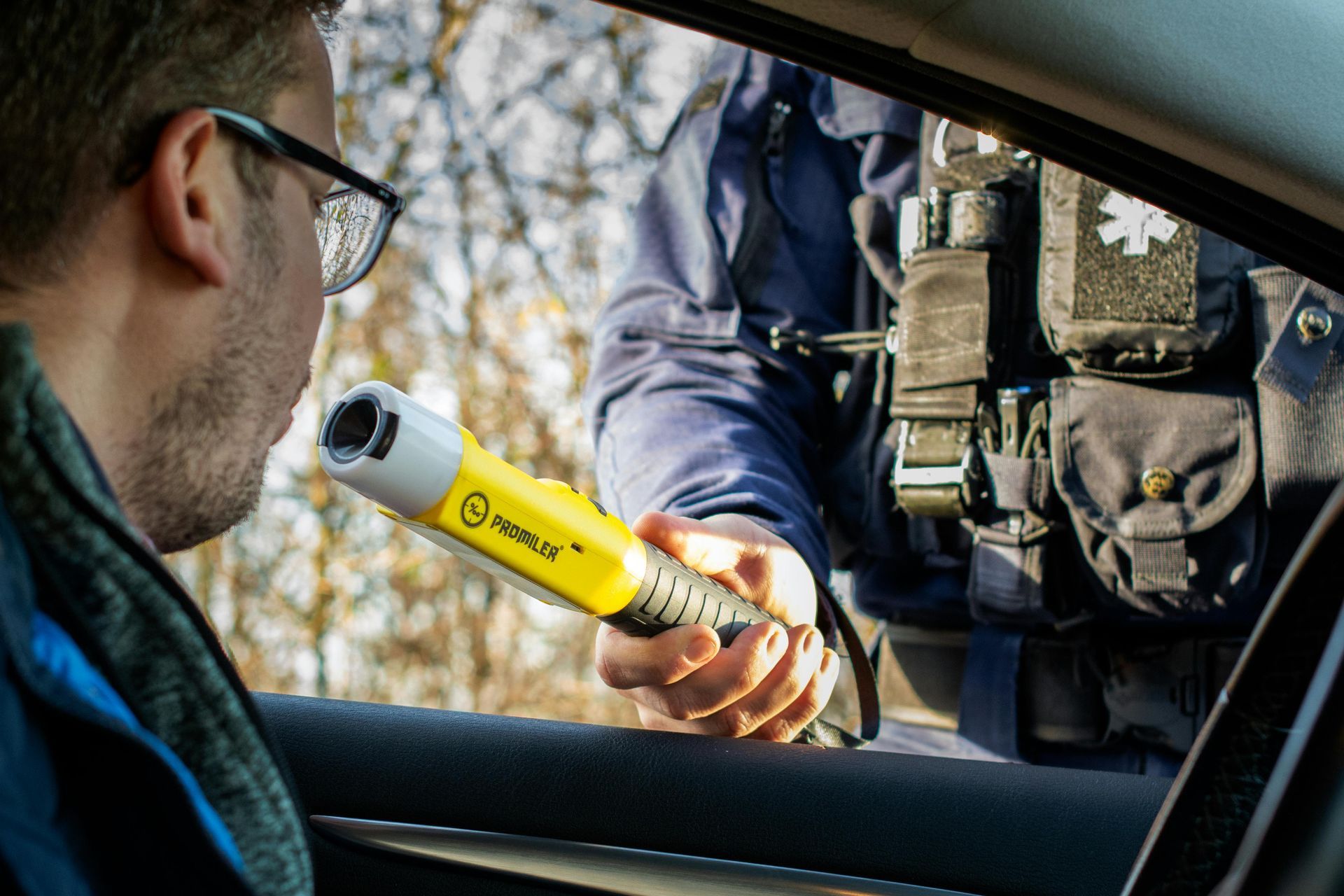
By Luis Chavez
•
November 13, 2025
Under Tennessee Code Ann. §55-10-401, “It is unlawful for any person to drive or to be in physical control of any automobile…(1) while under the influence of any intoxicant, marijuana, controlled substance, controlled substance analogue, drug, substance affecting the central nervous system, or combination thereof that impairs the driver's ability to safely operate a motor vehicle by depriving the driver of the clearness of mind and control of oneself that the driver would otherwise possess; (2) the alcohol concentration in the person’s blood or breath is eight-hundredths of one percent (0.08%) or more . . .” So after you’ve been charged with a DUI first offense, what does this mean for you? In Tennessee, a first offense for a DUI is punishable by a minimum of 48 hours to a maximum of 11 months and 29 days in jail. However, if your BAC is higher than a .20, the minimum jail sentence increases to 7 days. You may also be required to complete an Alcohol Safety School and Victim Impact Panel program by the Court. In addition to jail time, there is a minimum fine $350 for a DUI first offense, in addition to court costs. Your driving privileges will also be revoked for one year. However, you can apply for a restricted license with an ignition interlock device if your DUI was an alcohol related offense. If your offense was only drug related, you can apply for a restricted license with geographic restrictions. In addition to the criminal penalties, you may be required to purchase expensive SR-22 insurance, and the DUI could show up on background checks later on. It is important that your criminal defense attorney verifies that the police followed the proper law and procedures during the DUI investigation and arrest. Any mistakes made by the officers could affect whether or not there was sufficient probable cause for your arrest, or whether any evidence obtained can be used against you. How DUI cases are handled varies greatly depending upon the county your case is in and the local practices of the District Attorney’s office. That’s why it is so important to hire a criminal attorney that knows Tennessee laws and understands local practices in order to receive the best possible outcome for your DUI first offense. If you’ve been charged with a DUI, call our offices at (615) 649-0110 to ensure you receive a fair outcome in your case. Click here for more DUI related education center posts.

By Jonathan Carroll and Ryan C. Davis
•
November 13, 2025
Should I agree to take a breath or blood test? Once an officer has determined that he or she has probable cause to believe that you are driving under the influence, the officer may ask you to submit to a chemical test to determine your blood alcohol concentration (BAC). This typically occurs after field sobriety tests have been conducted (see post on field sobriety tests). Chemical tests are conducted in the form of either a breathalyzer test or a blood test. The results of these tests could help you prevent an arrest or provide a defense for your case, if your BAC is below 0.08. On the other hand, you could also be voluntarily giving prosecutors evidence which will be used to convict you. In fact, if your BAC result is above 0.2, your statutorily required minimum jail sentence may increase from 48 hours to 7 days. So, can you refuse to submit to these tests? Yes. You have the right to refuse to allow an officer to conduct breath or blood tests. However, there will be negative legal consequences if you choose to do so. Under the Tennessee Implied Consent Law, if you refuse a breath test, there is an automatic penalty against you. If you have not previously violated the Implied Consent Law, the penalty is the loss of your driver’s license for one year. You will be able to apply for a restricted license during that period, but you will be required to pay for and install an ignition interlock device on your car. However, this is considered a civil penalty and not a criminal conviction. It is also important to remember that the arresting officer must inform you of these consequences before any test is administered. If an officer fails to inform you of these penalties, your attorney may be able to suppress the results of any breath tests you performed. Regarding blood tests, however, things get a little more complicated. Until recently, an individual who refuses a blood test could not be charged with an implied consent violation. Our state and Federal courts have long since recognized that the level of intrusion for a blood draw is substantially higher than that of a breath test. However, a recent change in Tennessee law (T.C.A. §55-10-406) provides that someone who refuses a blood test can now be charged with an implied consent violation. The problem with this new law is that it is in direct contradiction to Tennessee Court of Criminal Appeals holding in State v. Henry, 539 S.W.3d 223 (Tenn. Crim. App. 2017). The Court in Henry held that Implied Consent does not justify a warrantless blood draw under the U.S. and TN constitutions. Thus, while the statute may have changed, it is likely not enforceabe. Nonetheless, any officer who believes there is probable cause for a DUI arrest can easily obtain a search warrant for a blood test, and should do so. Such a search warrant would absolve any implied consent violation. Likewise, any blood evidence that is obtained without consent and without a search warrant should be suppressed and inadmissible, under most circumstances. Even when a search warrant is obtained, time is usually your friend in these matters. There is no harm in requiring an officer to follow the law before obtaining your blood sample. Additionally, blood tests are typically a more reliable and more precise measurement of BAC, if the blood draw and lab tests are performed accurately. This is great to know, but what do I do? The problem with answering this question is that it’s a judgment call, and an impaired person may not exercise the best judgment. As a general rule, if you are suspected of DUI and you honestly believe you have not had too much to drink and you do not feel impaired, it may be beneficial for you to submit to either a breath or blood test. Even if you are slightly over 0.08, a low result may assist you in reaching a favorable settlement in your case, depending on the jurisdiction you are arrested in. However, if you know that you had too much to drink and shouldn’t have been driving, it does nothing but hurt your case to voluntarily submit to a chemical test. You would only be making matters worse for yourself. It goes without saying, but the best advice I can give when I’m asked this question is to avoid driving while impaired in the first place, and take a Lyft or Uber. An impaired person can rarely be trusted to make the best decisions when it counts the most.

By James Kemp and Ryan C. Davis
•
October 8, 2025
Most people know that driving under the influence of alcohol while having a blood alcohol content (BAC) above .08 is illegal and can lead to a DUI arrest and conviction. However, driving under the influence is not limited to just the “influence of alcohol.” Tennessee Code Ann. §55-10-401 states that “It is unlawful for any person to drive or to be in physical control of any automobile…(1) while under the influence of any intoxicant, marijuana, controlled substance, controlled substance analogue, drug, substance affecting the central nervous system, or combination thereof that impairs the driver's ability to safely operate a motor vehicle by depriving the driver of the clearness of mind and control of oneself that the driver would otherwise possess…” Therefore, in Tennessee, a driver can be convicted of DUI if he or she has taken any type of intoxicating substance, including marijuana, prior to getting behind the wheel of an automobile. Additionally, under this law, you can be convicted of DUI if you have a detectible level of an illicit substance or its metabolites in your system. However, there is currently no per se limit to how much THC or a THC metabolite can be present in your system. Inactive metabolites of THC (the psychoactive compound in marijuana) can remain in your body for several weeks and sometimes months, even though the “high” from marijuana lasts under an hour for most people. Thus, even though you may not be impaired by marijuana, you can be charged with DUI simply because you have a detectable level of THC in your system. Law Enforcement and prosecutors don’t really understand, or want to understand, the differences in how THC shows up in blood tests. They are hoping that your attorney will not understand the science behind THC levels, and that they will be able to convict you of DUI anyway. Furthermore, and most importantly, the THC levels found in blood tests vary greatly person to person, depending on how frequently they use. There is no consistent measure of THC that indicates impairment, as opposed to BAC with alcohol. Very, very few people arrested for DUI as a result of THC were actually driving impaired. Unless someone was using marijuana while they're driving or just before they were driving, they were probably not imparied as a result of marijuana. If you’re facing DUI charges related to marijuana, call the criminal defense attorneys at Ryan C. Davis Law, PLLC today. We understand the science that the government would like to ignore, and can help you begin preparing your defense to these charges today. Click here for more marijuana related education center posts.

By Jonathan Carroll and Ryan C. Davis
•
October 8, 2025
Should I agree to take a Field Sobriety Test? Are they reliable? What happens if I refuse? One of the most humiliating experiences a citizen can go through is standing alongside a highway in front of blue lights, while an officer subjects you to field sobriety tests. If you ever find yourself in this situation, there are some facts you should know before subjecting yourself to these tests. First of all, there are no laws that require you to submit to any field sobriety tests. Accordingly, you should politely refuse to participate in them, and there will be no legal consequences for you doing so. Police officers know this; however, they are under no obligation to inform you of this right. Keep in mind, if an officer is asking you to perform field sobriety tests, they likely already believe you are impaired. This biased opinion of the officer will also affect how they rate your performance. Field sobriety tests were developed in the 1970’s to help officers find probable cause of an intoxicated driver. The three most common tests are the walk and turn, one leg stand, and horizontal gaze nystagmus test, where an officer asks a driver to follow an object with his or her eyes. These three tests have been standardized by the National Highway Transportation Safety Administration. There are also non-standardized tests which an officer may perform, including the finger to nose test, the finger count test, and the backward count test. In spite of the training and standardization that NHTSA provides to law enforcement, scientific studies have shown that even when administered perfectly, field sobriety tests are less than 77% accurate. Why would you willingly subject yourself to a test that has such a low rate of accuracy? Field sobriety tests are not scientific in nature and the officer’s conclusions are based solely on how he or she feels you are performing. Additionally, many officers are not properly trained in explaining and administering these tests. Further, if you are elderly, significantly overweight, or suffer from back or leg injuries, officers are not supposed to ask you to perform field sobriety tests, as these conditions will lead to false conclusions. Lastly, you should know that these tests may not have any effect on whether or not the officer decides you are intoxicated. Even if you perform well on each test, the officer may still decide that he has a reason to believe you are driving under the influence and place you under arrest. Please note that while you can refuse field sobriety tests without consequences, that is not the case regarding breath or blood tests. For more information on refusing chemical tests, check out our post on Breath and Blood Tests. If you are asked to perform a Field Sobriety Test: Politely decline and stop talking Provide your license and insurance info promptly Do not admit to consuming any alcohol Do not answer any questions Do not argue or make excuses Ask if you are free to leave

By James Kemp and Ryan C. Davis
•
October 8, 2025
Can a Passenger of a Vehicle be Charged with a DUI? Most people are aware that if you drive with a blood alcohol content of .08 percent or higher, or if you drive under the influence of drugs, you can be charged with driving under the influence in Tennessee. However, did you know that is it possible for a passenger in a vehicle to be charged with DUI? Tennessee has a relatively unknown “DUI by consent” law, whereby if the owner of a vehicle allows an intoxicated person to drive his or her vehicle, the owner can also be charged with DUI by consent. Even more surprising is that the owner of the vehicle does not even have to be in his or her car at the time of the offense to be charged, provided there is some evidence they consented to an impaired person driving their car. Not only can a passenger of a vehicle be charged with DUI for allowing an impaired driver to operate his or her vehicle, there are also several other ways a passenger can be charged with a DUI by consent. For example, a passenger who reaches over and grabs the steering wheel in an attempt to maintain proper lane position, or if a passenger causes the driver of the vehicle to lose control of the wheel, he or she can also face DUI charges for technically operating the vehicle. If a driver of a vehicle switches places with a passenger after being pulled over by law enforcement, both individuals can be charged with DUI. Furthermore, if a law enforcement officer is not certain who was driving the vehicle, both the driver and passenger of the vehicle can be charged with DUI. What are the consequences for a DUI by Consent? A DUI by consent carries the same potential penalties as a standard DUI. In Tennessee, a first offense for a DUI is punishable by a minimum of 48 hours to a maximum of 11 months and 29 days in jail. However, if the driver’s BAC is higher than a .20, the minimum jail sentence increases to 7 days (see our post on consequences for a DUI) If you’re facing a DUI or DUI by consent charge, call the experienced criminal defense attorneys today at Ryan C. Davis Law, PLLC at (615) 649-0110 to help you begin preparing your defense.
